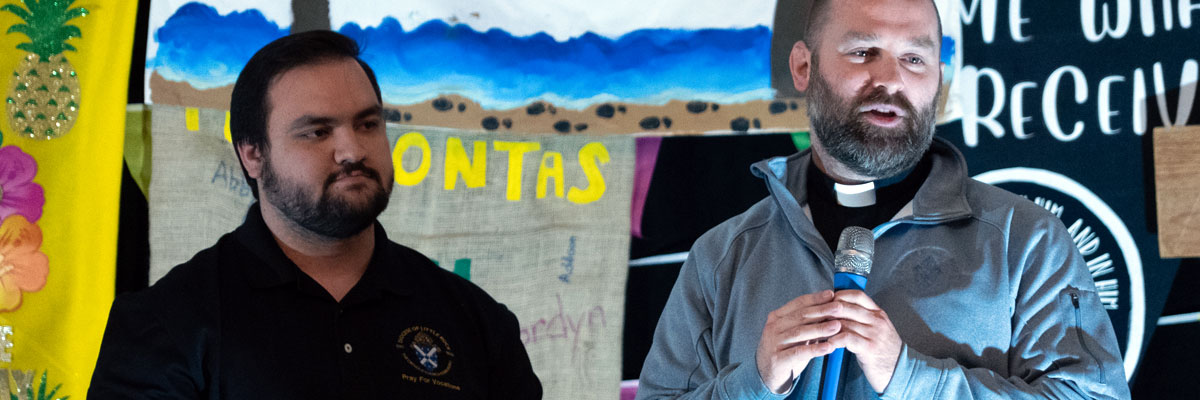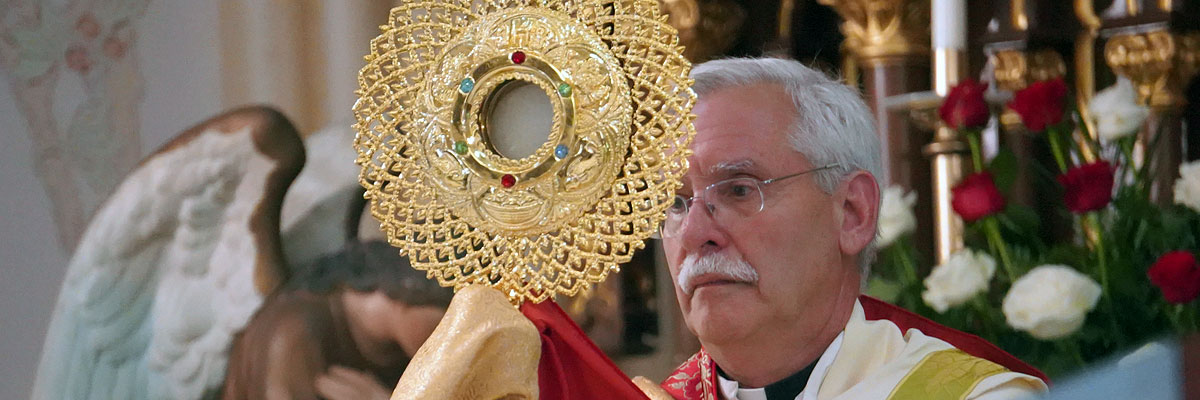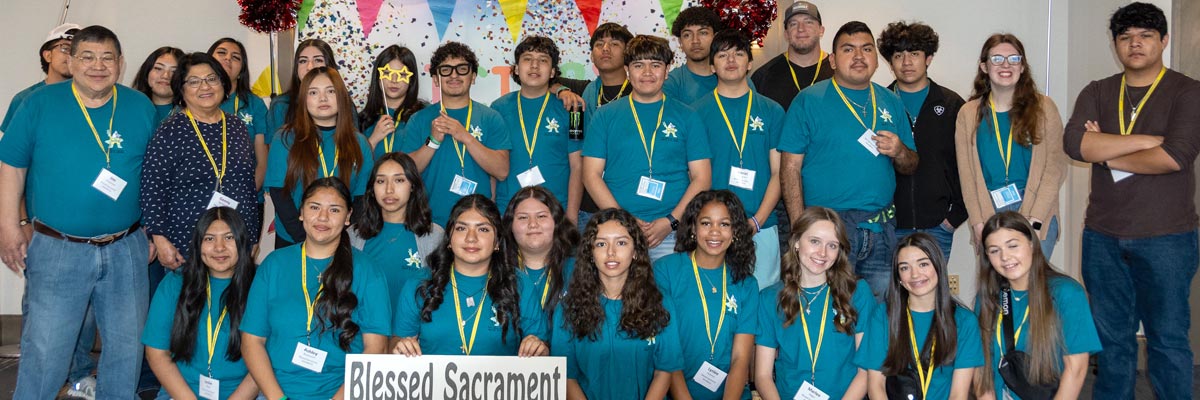Official Website of the
Catholic Diocese of Little Rock
Saturday, 22nd Week of Ordinary Time, Cycle I
Published: September 7, 2019
Bishop Anthony B. Taylor preached the following homily during a Mass to install Father Leon Ngandu as pastor of St. Augustine Church in North Little Rock on Saturday, Sept. 7, 2019.

Bishop Taylor
Do you know the biggest difference between the Army and the Navy? In the Army you can do anything that is permitted, but in the Navy you can do anything that is not forbidden. The practical consequences of this distinction are enormous.
Do you know the difference between English common law upon which our American legal system is based and Roman law upon which Church law and the modern Italian legal system is based? Our laws state the minimum, below which you are in violation of the law. Roman law focuses more on the purpose the law is trying to achieve and describes the way things ought to be, below which you are in non-compliance with the law.
Even the words violation versus non-compliance reflect two very different legal cultures and the practical consequences are enormous. You can be out of compliance and still fulfill the law’s purpose. The purpose of traffic lights is to prevent accidents, so in Italy people may simply stop, look to see if any cars are coming, and if not, they might proceed through the intersection even though the light is still red. A policeman observing this could still give them a ticket, but it would not be very likely because they did not violate the purpose of the law — preventing accidents.
One of the reasons we abstain from meat on Fridays of Lent is to help us identify with the poor who cannot afford meat. If you eat lobster, you have not violated the letter of the law regarding this Lenten regulation, but fine dining of this sort is contrary to the spirit of Lent.
We have a similar clash between two legal cultures in today’s Gospel. The Pharisees are like us Americans: They understood the law to state the minimum, so when they see Jesus’ disciples picking grain to eat, they accuse them of violating the law forbidding work on the Sabbath. By contrast, Jesus says that achieving the law’s purpose is more important than the law itself.
One of the purposes of the Sabbath was to prevent exploitation of workers and self-imposed workaholism by making everyone take a day off and to remind us that we belong to God, who deserves our worship, and that everything we produce the other six days of the week ultimately belongs to God. So, when Jesus says that the Sabbath was made for man, not man for the Sabbath, what he means is that his disciples did not violate the purpose of the Sabbath even out of compliance with rules about Sabbath observance.
These disciples were in no danger of becoming workaholics (they were unemployed) or of forgetting that they were God’s servants — after all, they were following Jesus. Jesus describes his approach elsewhere as obeying the spirit of the law rather than the letter of the law. Meaning that sometimes you have to be out of compliance with a law’s provisions in order to fulfill the purpose the law was trying to achieve.
Here is a simple example from Lent. One of the reasons we abstain from meat on Fridays of Lent is to help us identify with the poor who cannot afford meat. If you eat lobster, you have not violated the letter of the law regarding this Lenten regulation, but fine dining of this sort is contrary to the spirit of Lent.
By contrast, if you are a guest in someone’s home and out of ignorance they serve you chicken on a Friday of Lent, you should go ahead and eat the chicken in order to be faithful to the spirit of Lent — which would expect us to act charitably rather than do anything to make the hosts feel bad — even though doing so puts you out of compliance with our man-made Lenten regulations.
If this happens, just abstain from meat some other day that week. That’s the attitude toward the law that Jesus taught and lived. As he says in today’s Gospel: “The Son of Man is Lord of the Sabbath” and elsewhere, “The Sabbath was made for man, not man for the Sabbath.”









